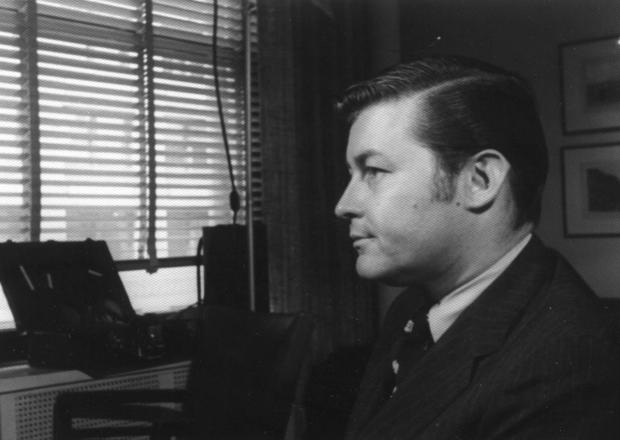Digging through Bill Plante's dusty files
If journalism is the first draft of history, correspondent Bill Plante has been working on that draft for more than half a century.
Plante was hired as a young reporter at CBS News in 1964, and since then, he has covered nearly every major story, from the civil rights movement to the election of the first black president decades later. He reported from Vietnam four times during the war and returned for the fall of Saigon. When Ronald Reagan was in office, he both grilled the president on the Iran-Contra scandal and sampled wine with him. He covered the administrations of four presidents.
At 78 years old, Bill Plante is retiring.
“The greatest thing about being in this job for 50 years is having had the ability to be there in the front seat as history is being made,” he told 60 Minutes Overtime’s Ann Silvio in an interview last year. “It’s a great privilege.”
One of those front-row moments came in 1965, when the civil rights movement was coming to a boil in Selma, Alabama. CBS News sent Plante down South to cover the story. He was 27 and only one year on the job. What happened in Selma over the course of three months would change history, and Plante was there, taking notes on the extraordinary events that unfolded around him.
Plante spoke about the experience to 60 Minutes Overtime last year, but he didn’t just dig up memories. He also brought a dusty file of scripts — covered with cigarette burn marks and scribbled edits -- which he typed each day in Alabama on his Olivetti Lettera 32 portable typewriter.
“The greatest thing about being in this job for 50 years is having had the ability to be there in the front seat as history is being made.” Bill Plante
In those scripts was a remarkably detailed first-hand account of the key events that led to the landmark Voting Rights Act of 1965. Plante shared them in the video above.
Plante arrived in Alabama in January 1965, and he covered the events of February 18th, the night an Alabama State Trooper chased a young activist named Jimmie Lee Jackson into a café and shot him.
“The shooting of Jimmie Lee Jackson was the spark that ignited the marches on Montgomery,” Plante told 60 Minutes Overtime. After the shooting, outraged civil rights workers proposed a 50-mile march from the town of Selma all the way to Montgomery, the Alabama state capital and a bastion of the Confederacy.
On March 7th, civil rights workers assembled in Selma to begin the march. They didn’t get far. The violent events of that day, depicted in the Oscar-nominated film “Selma,” would later become known as Bloody Sunday.
Weeks later, on March 21st, thousands of civil rights workers assembled again in Selma, determined to march all the way to Montgomery, 50 miles away. “As that march began, it was both a party and a joyful act. There was singing, there was cheering, clapping, signs held aloft, and a sense among all of these people that this was a great victory,” Plante said.
It took five days for the enormous crowds to march into Montgomery, and Plante stayed with the march the whole way.
“It was pretty obvious when that march got to Montgomery, Alabama, that it was a historic moment,” Plante said. “And you were just happy to have been there.”
Editor’s note: The video was originally published on Feb. 8, 2015.




